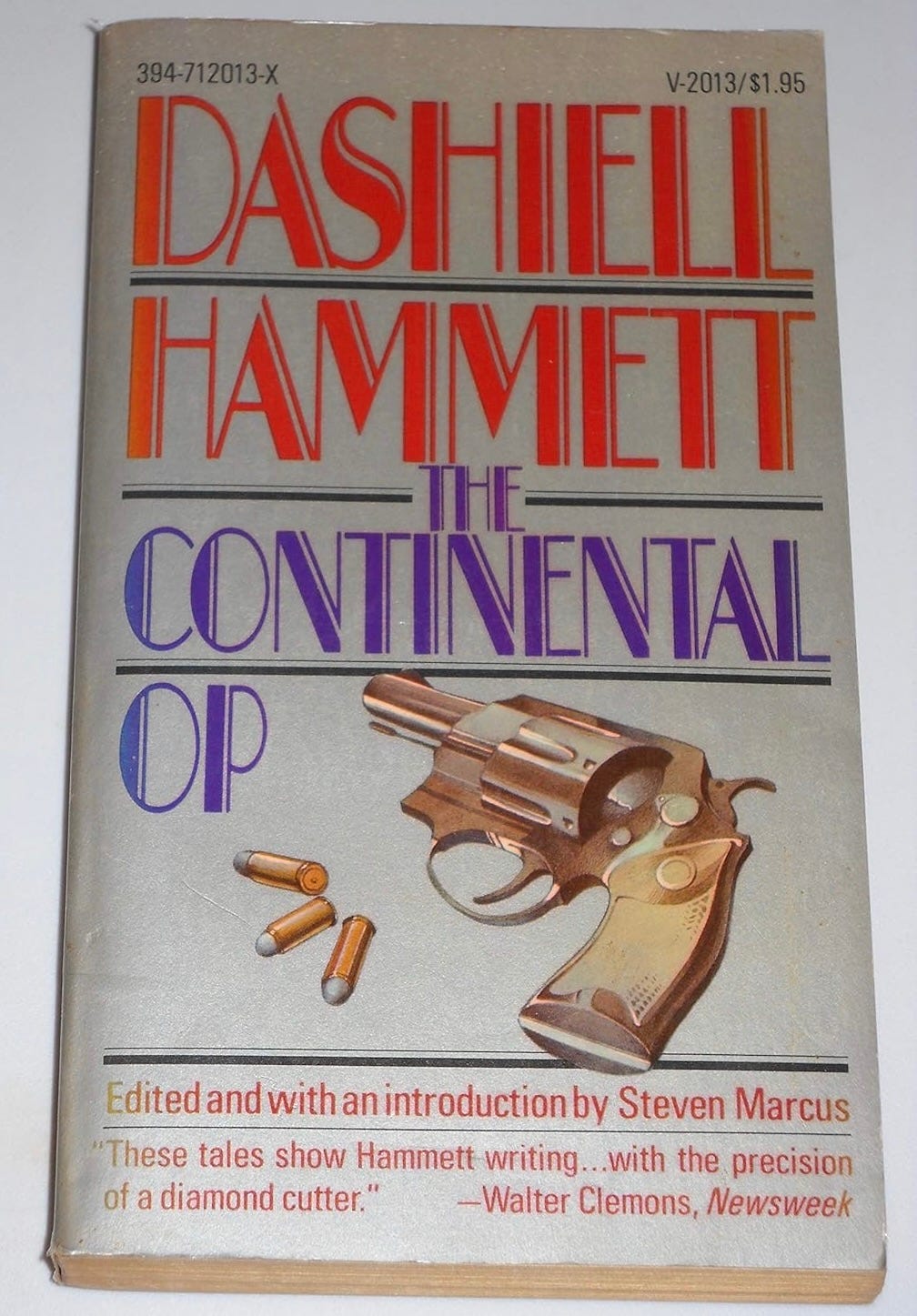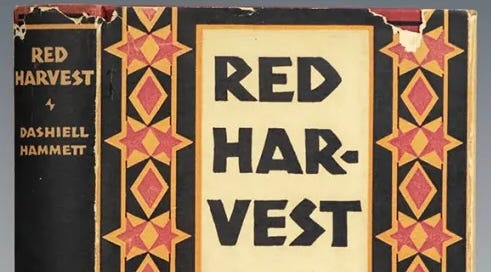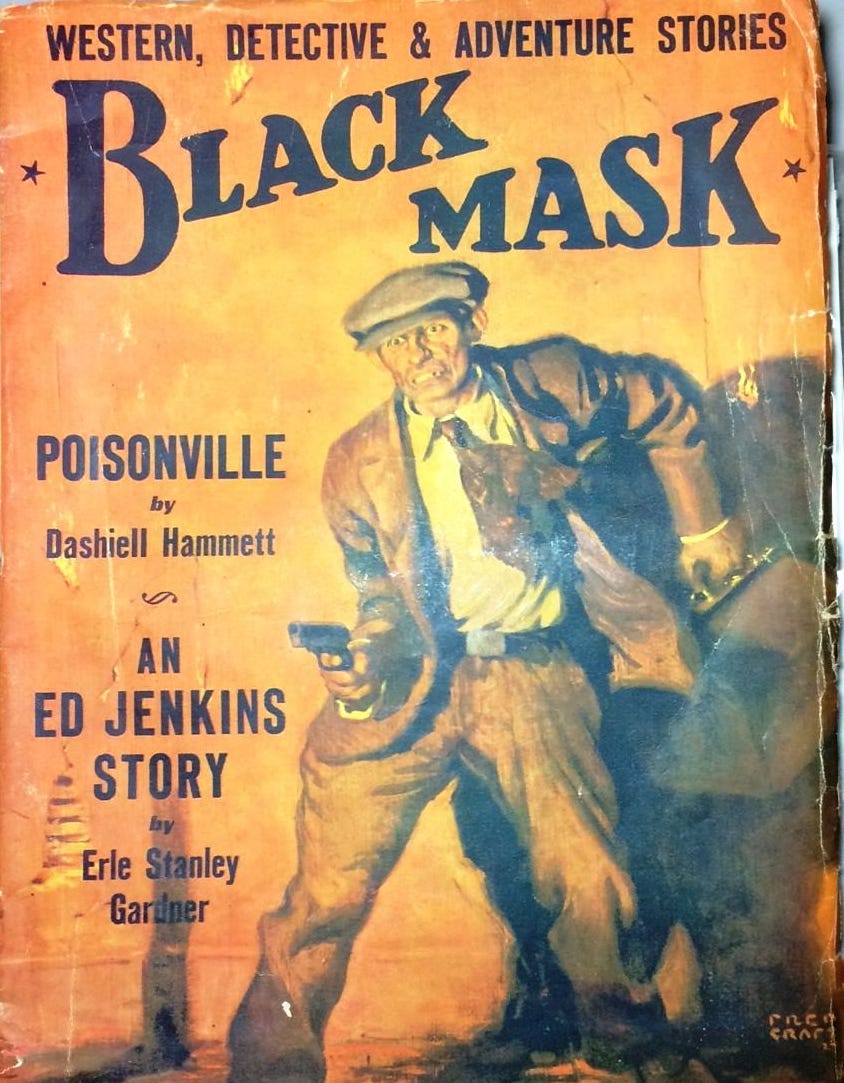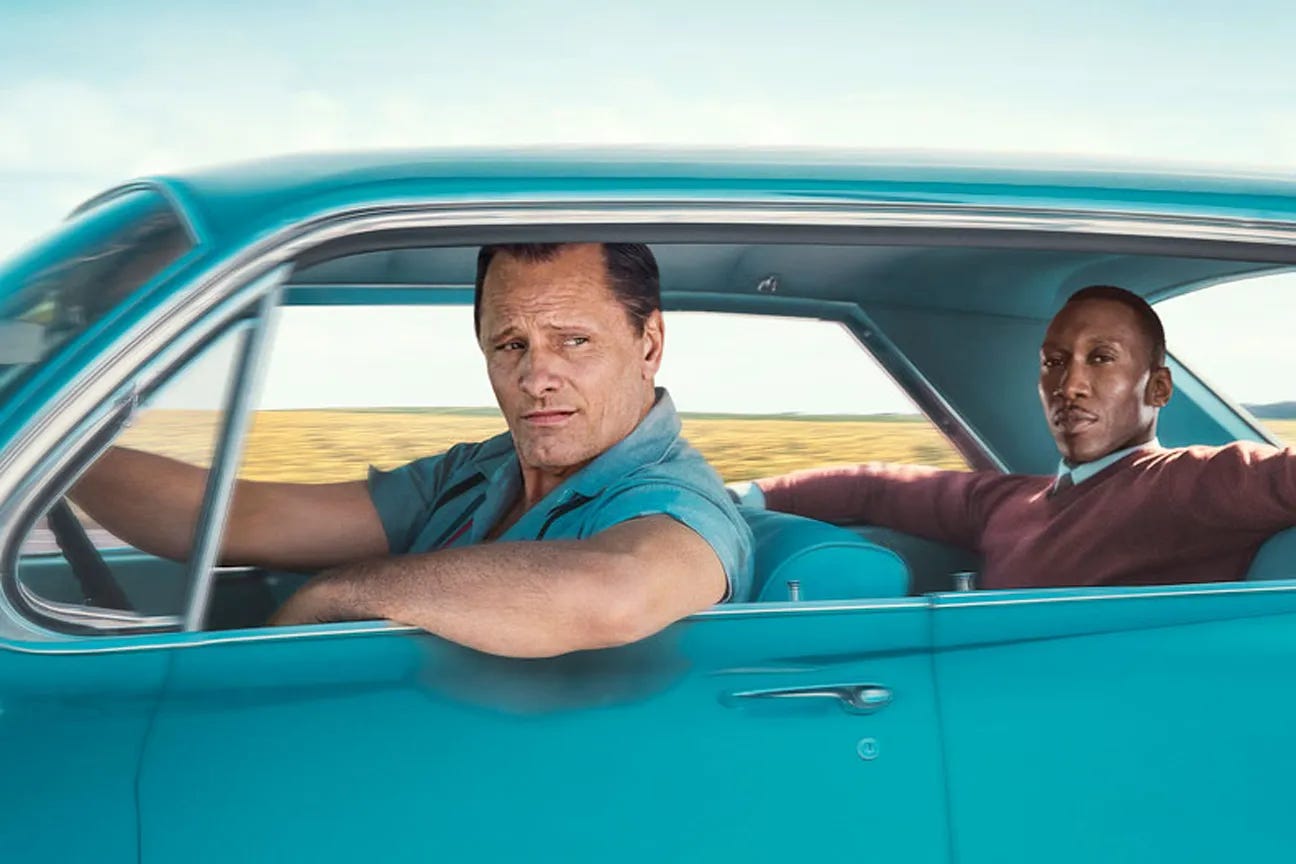Ross Barkan and Freddie deBoer are prolific on their Substacks; I strongly recommend subscribing to both.
Barkan and deBoer have also published essays in The New York Times within the past week.
Barkan: “The Activist Left Doesn’t Want a Hero. But Does It Need One?”
deBoer: “What Will It Take for Hollywood to Grow Up?”
The articles are excellent, but they also inevitably went through the rather implacable editorial process of The New York Times. Everyone who writes for the Times ends up sounding like the Times. As a result, the exceptionally distinctive voices of Barkan and deBoer are toned down a little bit.
I became attuned to this particular topic after publishing my Gershwin essay “The Worst Masterpiece: Rhapsody in Blue at 100” in The New York Times this past February. There was at least a week of editing, with two different editors who answered to a higher third editor. After I thought I signed off everything, the final was edited further (without my oversight) and made even more “New York Times-y.”
That’s fine, I didn’t really mind, I don’t have much of a prose style anyway. Indeed, my essay was controversial enough in final form; if the Times hadn’t applied that quietly authoritative brush, I might have been even more controversial. (However, to the many offended people who angrily told me that my Gershwin piece desperately needed an editor: Go climb a tree.)
Editors have a lot of power, and at times they can be underrated.
I’m something of an expert in crime fiction, and therefore have due reverence for the great Dashiell Hammett. Hammett published in pulp magazines like Black Mask before signing a proper book deal with Knopf. His first novel, Red Harvest from 1929, is a classic by any standard.
The opening line is famous.
I first heard Personville called Poisonville by a red-haired mucker named Hickey Dewey in the Big Ship in Butte.
Red Harvest was originally called Poisonville when serialized in Black Mask,
and the Poisonville opening line is different:
I first heard Personville called Poisonville in 1920, in the Big Ship in Butte, by a red-haired mucker named Hickey Dewey.
Well, well, well. The Knopf edit is unquestionably better. Indeed, many of the debated sentences are more satisfying in Red Harvest than in Poisonville.
These days The Big Book of the Continental Op (2017, edited by Richard Layman and Julie M. Rivett) collects all the pulp Hammett in the original form. In the case of Red Harvest, that’s a bit like putting out the complete unedited Miles Davis Bitches Brew or Charles Mingus Ah Um. These esoteric releases may be a goldmine for specialists and historians, but the general public should have easy access to the final product that made the works popular in the first place.
My editor at The Nation, Shuja Haider, is interesting. He doesn’t do much to my style (such as it is), but rather digs into the structure of the piece. Shuja’s speciality is re-ordering huge blocks of text. At times he even writes a whole paragraph for transitional purposes. The first time he did this I was taken aback. But after I put my ego to the side, I realized that Shuja transformed inchoate ideas into legible communication. (There’s a reason I cite Bitches Brew and Ah Um in the previous paragraph, for I have joked to Shuja that he is “my Teo Macero.”)
Shuja recently published his own fascinating essay about the process called “The Drama of Editing.” Thanks to Flaming Hydra for unlocking this piece for my readers (usually it is paywalled). Make sure you pop over and check it out.
For a time I wrote a bit for the Culture Desk of The New Yorker, where I was edited by the estimable Michael Agger. On one occasion Agger saved my bacon, although at first was I furious.
The topic was pianist Don Shirley, who was suddenly relevant again thanks to the movie Green Book. I thought it would be interesting to discuss Shirley’s obscure and almost unclassifiable music; my proposed title was “Listen to Don Shirley.”
Green Book was not a great movie, but I also thought the leftist social media buzz about the movie’s poor racial politics was overwrought, especially since Shirley’s music displayed such a frankly Caucasian style.
Hollywood is gonna Hollywood. For what it is, Green Book does the job. I appreciated what Kareem Abdul-Jabbar had to say about the movie. Closer to home, African-American jazz masters Tootie Heath, Billy Hart, and Branford Marsalis all told me in person that they dug Green Book, and I even grabbed direct quotes from Branford for my piece.
My strength as a writer is explaining musical nuts and bolts from a historical perspective. In my Don Shirley essay, I essentially bypassed the hot-button topic of Green Book race relations, and tried to address the question, “What did Don Shirley actually play?”
I handed in a final at the top of 2019 and didn’t hear back for weeks. It finally went up in late February, a day before the Oscars. To my shock, Michael Agger had made sure that the article aligned with leftist social media consensus, beginning with an absurd title, “The Music of Don Shirley Is More Resilient Than Any Green Book Cliché.”
What?! Shirley’s music is not particularly resilient. The only reason anybody has listened to Shirley in the 21st-century is thanks to the Hollywood movie. Agger’s title was the opposite of the truth.
Agger also wrote most of the first paragraph. The first two sentences are from me, the rest in italics are from my editor:
A year ago, if you had asked up-and-coming American musicians about the pianist Don Shirley, they probably would have said, “Who?” That’s changed. Shirley is a central character in the movie “Green Book,” which is nominated for five Oscars. Based on a true story, the film follows a concert tour that Shirley, who was Jamaican-American, took through the Midwest and the South, in the nineteen-sixties. He hires Tony Vallelonga, an Italian-American bouncer from New York City, to serve as his driver. (The “Green Book” of the title refers to “The Negro Motorist Green Book,” a guidebook for African-American motorists that led to motels, restaurants, and other establishments that would serve them.) Because of several scenes that show Vallelonga stepping in to save Shirley from hostile white authorities, the film has been criticized for being the latest variation on the tired “white savior” trope. But a look beyond the film, at Shirley’s career, shows that he is more resilient and interesting than any Hollywood cliché.
Again, I liked the movie OK, and saw no need to rehash Twitter talking points. When I saw the final edit on the New Yorker site, I gasped out loud, and spent the rest of the weekend grousing about it. “…They don’t need me for this, literally anyone could write this bullshit…also Shirley is not resilient, Don Shirley owes his unexpected resurrection to Peter Farrelly and Viggo Mortensen…”
But then, Green Book won Best Picture at the Oscars! Social media exploded in anger against the movie!
Thanks to Michael Agger, I was saved from a single drag. A glance at the title and first paragraph of my piece showed that I was on the correct side, and the hordes of haters passed me by.
When I’ve written for The New Yorker, The Nation, or The New York Times, my sentences have been fact-checked. That’s a bit of an uncomfortable process. Not only do I make dumb mistakes in the first draft, but the phrase “poetic license” is real, for fact-checking is death on clean and clear sentences. In every case, my prose has suffered. Grand proclamations are undercut by hemming and hawing, innovative icons are crowded by a list of important lesser-knowns.
Still, the truth matters more than the prose.
(Now that I’ve been fact-checked so many times, I hate to think how many details are slightly incorrect in the millions of words self-published on Do the Math and Transitional Technology. Nothing life-threatening, I trust, as it’s mostly just ranting about jazz.)
Social media can be fun, but it is also a pack of lies. Everyone wants to be viral, so everyone uses poetic license to try to win the day.
Some think that the newspapers are just as bad as social media. That’s not my opinion, but no one could say that any media outlet gets it right all the time. Fact-checking is a laborious and at times even mysterious process. A good reporter has to forgo their priors. Almost everything is more complicated than it first appears.
Obviously, I’m yelling into the void. Even people I generally respect spread misinformation online. I suppose I’ve even done it myself, although I have never reposted a short video of a sound bite or confrontation. (Those short sound bite or confrontation videos always turn out to not be the whole truth one way or the other.)
It’s an election year. I’m a lifetime Democrat, and it seems like God herself stepped in to replace Biden with Harris and Walz. Are Democrats actually making good decisions that are also popular? Strange but apparently true.
Well, it’s still gonna be a wild ride until after November. Let’s all do what we can to deal in facts, not poetic license.
Bonus tracks for crime fiction fans:
Lawrence Block’s insightful comment on Robert B. Parker, “We Like the Way It Sounds,” explains Block’s conception of “voice” and “style.” Of course, Block himself has an unmistakable voice and style; how wonderful to have one master comment unrestrainedly on another.
Back to Dashiell Hammett, especially his 1924 story “The Golden Horseshoe.” When the Continental Op goes down to Tijuana, he does a bit of spontaneous fact-checking:
I was reading a sign high on the wall behind the bar:
ONLY GENUINE PRE-WAR AMERICAN AND BRITISH WHISKEYS SERVED HERE
I was trying to count how many lies could be found in those nine words, and had reached four, with promise of more, when one of my confederates, the Greek, cleared his throat with the noise of a gasoline engine’s backfire.
The many Black Mask stories featuring the Continental Op were first reprinted in the ‘40s under the oversight of Frederic Dannay, best known as half of “Ellery Queen.” (Wikipedia: The Continental Op.)
Those Dannay edits were the source of other 20th-century reprints of Continental Op stories. In the last few decades the Library of America Crime Stories and The Big Book of the Continental Op have gone back to the original pulp texts; these days the original pulp versions proliferate on Kindle in dubious editions.
I grew up with the Dannay edits, so I like those better because of the familiarity, but I can also show a concrete editorial reason to approve of Dannay with “The Golden Horseshoe.”
There are two dozen Op stories and two Op novels, and nowhere does the reader learn the detective’s name. This innovative “anonymous” gambit has gone everywhere into all genre work since.
In “The Golden Horseshoe,” Hammett was clearly tired of having to work around a nameless character. The Op tells people an alias, Parker, which is soon transformed to “Painless” Parker. There’s a lot of dialogue, and for the rest of the story we read “Painless” or “Parker” on nearly every page. Dannay took all that out, and that was a good decision. In the Dannay edit, “The Golden Horseshoe” is one of Hammett’s best short stories, and the Op remains comfortably aloof and mysterious.
These early Hammett efforts are casual tales with guns, cars, and bootleg gin. Tightening up the corners of the plot and prose isn’t exactly sacrilege, especially since nobody thinks that all the stories are equally good.
Furthermore, the 20th-century audience ate up the Dannay edits.

Mostly I've been praising editors on this page, but that doesn’t mean a great author shouldn’t have final say.
In terms of naming his characters, Hammett goes in the opposite direction from the Continental Op in his novel The Glass Key. Hammett refers to his main character, Ned Beaumont, with the full name in every descriptive paragraph. In dialogue, other characters might say “Ned” or “Beaumont,” but whenever the author is writing the sentences, it is always “Ned Beaumont.”
The Glass Key might be the most stylized and controlled work by Dashiell Hammett; it certainly is the one you send in to compete against Proust or Steinbeck or Woolf or whoever.
I’m sure the team at Knopf tried to get Hammett to budge. “Dash, can’t you just say ‘Beaumont’ instead of ‘Ned Beaumont’ sometimes? It starts to feel awkward.” But Hammett knew what he was doing, he looked his editor in the eyes and held the line, and the constant drumbeat of “Ned Beaumont” helps give the novel its unique affect.






Ethan -- Along the same lines, see if you can find D.T. Max's piece (from years ago) about Gordon Lish's editing of Raymond Carver at Esquire. Carver was one of my favorites, and I was horrified to find that some of my favorite lines were completely written by Lish. Not RE-written, but written, from whole cloth. Always the perfect line in the perfect place, but I was crestfallen. Then check the interview with fiction writer Joy Williams in the current online edition of Esquire. She recalls an edit by Lish of one of her stories for Esquire that was almost as radical -- it added nothing, but made several cuts. She was at first shocked, but ultimately quite happy with them.